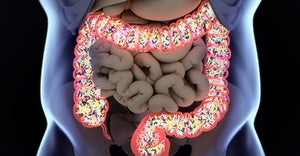Inositol And Sleep

To many patients, adequate sleep might often be a low item on the priority list until the years of insufficient sleep and/or low quality sleep stack up, producing chronic fatigue, a weakened immunity and compromised health. Many fail to understand the importance of the restoration and healing that occurs during those eight critical hours when the body disengages from the stimulating activities of the day and focuses on rebuilding and repairing hormones, cells, and immunity. Recent trends point to an alarming increase in sleep deprivation and sleep quality among adults, which may pose multiple public health issues, such as automobile and occupational accidents. Concentration, memory, and performance are negatively affected by insufficient rest as well as a host of physiological functions including blood pressure, mood stability, metabolism and blood sugar control.
In an attempt to reestablish healthy sleep habits among deprived adults, various supplements and aids that promote rest and relaxation have generated a popular niche in the market. One substance that may be fairly new this market, but well known to the body, is inositol – a nutrient showing favorable results for supporting healthy sleep habits. Unlike many nutrients that target key neurotransmitters and hormones when promoting sleep, inositol plays the role of a secondary messenger (known as inositol phosphates) in various signal transduction pathways of neurons, which are utilized by sleep-promoting hormones such as serotonin. The body naturally produces a few grams of inositol daily. Plant-based foods also carry a significant amount, however, in many foods (particularly the cereal grains) inositol is present in the form of a phytate or phytic acid, which is not bioavailable to humans. Therefore, supplementation is the best method of delivery. Interestingly, because inositol is a glucose derivative, it is a naturally sweet and palatable powder.
Previous research has shown inositol to be a highly successful adjunct nutrient for obsessive-compulsive behavior, panic/anxiety disorders and mild depression. Inositol reverses desensitization of serotonin receptors, resulting in increased serotonin. Therefore, psychiatric conditions that improve with serotonin selective re-uptake inhibitors (SSRIs) will most likely respond positively to inositol.
Insomnia is often linked to various psychiatric conditions such as depression and anxiety disorders. In a study of 100 healthy individuals, serotonin levels were assessed with relation to degrees of insomnia and depression. A strong correlation was found to exist between insomnia, depression and low serotonin levels. Serotonin is clearly the common denominator since it plays roles in both mood and sleep/wake cycles. Therefore, inositol’s ability to increase serotonin receptor sensitivity may be the reason why it is capable of inducing sleep as well as improving certain psychiatric conditions. Not every case of insomnia includes depression or other psychiatric conditions, but if a less-than-optimal level of serotonin is the reason for insomnia, inositol may be the perfect tool for gaining optimal levels.
Underlying causes of sleep difficulties could be multifaceted as well. Combining inositol with other nutrients that function to support and regulate serotonin levels such as L-theanine and 5-HTP (amino acids used to synthesize serotonin and melatonin) will ensure that “all bases are covered” and quality sleep can be attained.
Although more clinical trials would be beneficial to solidify the efficacy of inositol in independent sleep conditions, preliminary anecdotal evidence is very promising. The safety of inositol makes it a prime recommendation for all age groups. It has been utilized in smaller quantities of less than 1 gram while studies using inositol for panic disorders utilized up to 18 grams per day in subjects. The ability of inositol to positively influence serotonin is well known in clinical trials involving psychiatric conditions, but observable evidence in private case studies is beginning to shed light on the potential success of this truly sweet nutrient on inducing the quality sleep so many American’s are in great need of today.
- David Brady







Comments 0